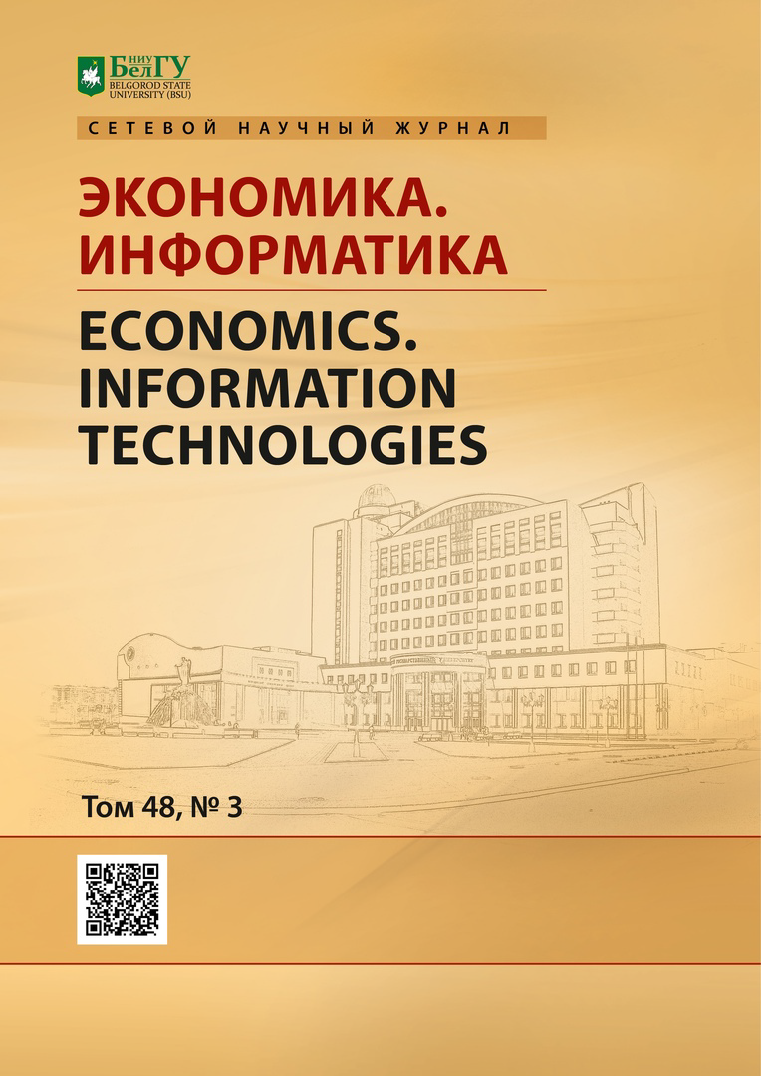Methodology for managing business entities of the tourist services market in the context of intensifying the competitive process
DOI:
https://doi.org/10.52575/2687-0932-2021-48-3-495-506Keywords:
tourism organizations, management, competition, inter-entity interactions, tourism networks, corporate identityAbstract
A characteristic feature of the modern tourist market is the intensification of the competitive process. Scientific developments in the field of managing the competitiveness of organizations that introduce tourism products and services to the market do not fully reflect the methodological provisions of the modern management paradigm, which focuses on the development and effective use of intersubjective interactions and business contacts. In this regard, the purpose of the study is to formulate methodological provisions that ensure the development of effective management decisions in tourism business organizations operating in a competitively active environment of the tourism market, taking into account the possibilities for their interaction, inclusion in network formations and the use of the factor of corporate identity. The article reveals the scientific, theoretical and methodological foundations of competitive behavior and ensuring the competitiveness of business entities of the tourism market and its management with the orientation of the management process towards the use of tools of intersubjective interactions leading to the formation of entrepreneurial networks. The analysis of the principles and methodological techniques recommended for implementation in the management of tourist networks, focused on competitive issues, is carried out. A complex of methodological provisions has been formed, the use of which can ensure the establishment, maintenance and development of corporate identity of tourist networks and the development of solutions that implement its methodology in practice. The significance of the results obtained lies in the transformation of the theoretical and methodological basis for managing the business entities of the tourist services market involved in intense competition in accordance with the provisions of the concept of interaction, network theory and theory of competition, as well as the methodology of corporate identification.
Downloads
References
Багиев Г.Л., Сомова А.В. 2019. Концепция маркетинга здравого смысла и управление качеством потребления ресурсов. Национальная концепция качества: государственная и общественная защита прав потребителей: сборник тезисов докладов международной научно-практической конференции. СПб., Изд-во СПбГЭУ: 251–256.
Иванова М.О., Пяткова Н.В., Иванова В.С. 2019. Предпосылки формирования корпоративной идентичности персонала в процессе реализации программам дополнительного профессионального обучения. Транспорт России: проблемы и перспективы: материалы Международной научно-практической конференции. СПб., ИПТ РАН: 143–146.
Иноземцев В.Л. 2019. Экономика и политика глобализации: уроки прошлого для настоящего и будущего. Век глобализации, 2(30): 3–15.
Камерон К. 2001. Диагностика и измерение организационной культуры. СПб.: Питер, 320 с.
Каныгин Г.В., Хорева Л.В. 2016. Инновационный взгляд на сферу услуг: онтологии сервиса. Известия Санкт-Петербургского государственного экономического университета, 5(101): 78–85.
Селютина Л.Г. 2002. Методологические проблемы оптимизации структуры жилищного фонда и жилищного строительства в крупном городе в современных условиях. Дис. … док. экон. наук, СПб.: СПбГИЭУ, 340 с.
Сущинская М.Д. 2017. Актуальные аспекты интерпретации и реализации клиентоориентированности бизнеса. Актуальные проблемы развития сферы услуг: сборник статей. СПб., Изд-во СПбГЭУ: 100–105.
Федорцова С.С. 2020. Современное состояние индустрии туризма. Colloquium-journal, 8 (60): 8–11.
Хакимов А.Х. 2019. Проблемы управления конкурентоспособностью российских предпринимательских структур и пути их решения. СПб.: СПбГЭУ, 200 с.
Харламова А.А. 2014. Совершенствование механизма развития туриндустрии мегаполиса в условиях глобализации. Дисс. ... канд. экон. наук, СПб.: СПбГИЭУ, 171.
Юлдашева О.У. 2016. Секреты маркетинга услуг: теория и технология. Управление продажами, 2: 148–149.
Govoreanu A. et al. 2010. Priority management – a direction towards competitiveness // Studies in Business and Economics, 5(3): 171–184.
Pesotskaya E.V., Selyutina L.G., Egorova O.A. 2019. Application of the engineering forecasting method in managing the competitiveness of a construction company. IOP Conference Series: Materials Science and Engineering, 698(7): 077029. DOI: 10.1088/1757-899X/698/7/077029
Selyutina L.G., Pesotskaya E.V., Trushkovskaya E.D. 2020. Analysis of Approaches to the Implementation of Programs for the Urban Complexes Reconstruction in Russia. IOP Conference Series: Materials Science and Engineering, 753 (3): 032044. DOI: 10.1088/1757-899X/753/3/032044
Tang C., Naumann S. 2016. The impact of three kinds of identity on research and development employees’ incremental and radical creativity. Thinking Skills and Creativity, 21: 123. DOI: 10.1016/j.tsc.2016.06.003
Abstract views: 393
Share
Published
How to Cite
Issue
Section
Copyright (c) 2021 ECONOMICS. INFORMATION TECHNOLOGIES

This work is licensed under a Creative Commons Attribution 4.0 International License.


